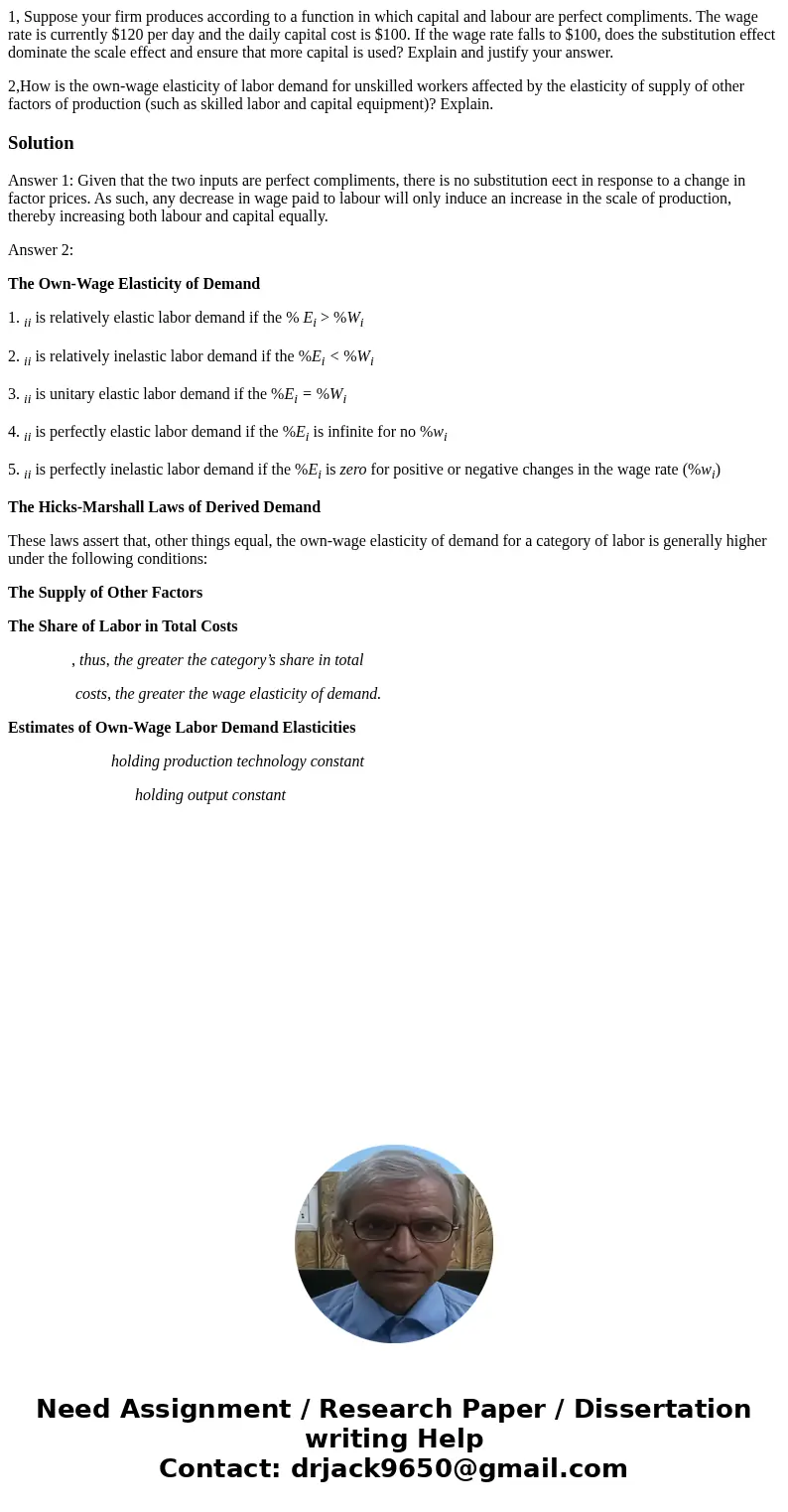1 Suppose your firm produces according to a function in whic
1, Suppose your firm produces according to a function in which capital and labour are perfect compliments. The wage rate is currently $120 per day and the daily capital cost is $100. If the wage rate falls to $100, does the substitution effect dominate the scale effect and ensure that more capital is used? Explain and justify your answer.
2,How is the own-wage elasticity of labor demand for unskilled workers affected by the elasticity of supply of other factors of production (such as skilled labor and capital equipment)? Explain.
Solution
Answer 1: Given that the two inputs are perfect compliments, there is no substitution eect in response to a change in factor prices. As such, any decrease in wage paid to labour will only induce an increase in the scale of production, thereby increasing both labour and capital equally.
Answer 2:
The Own-Wage Elasticity of Demand
1. ii is relatively elastic labor demand if the % Ei > %Wi
2. ii is relatively inelastic labor demand if the %Ei < %Wi
3. ii is unitary elastic labor demand if the %Ei = %Wi
4. ii is perfectly elastic labor demand if the %Ei is infinite for no %wi
5. ii is perfectly inelastic labor demand if the %Ei is zero for positive or negative changes in the wage rate (%wi)
The Hicks-Marshall Laws of Derived Demand
These laws assert that, other things equal, the own-wage elasticity of demand for a category of labor is generally higher under the following conditions:
The Supply of Other Factors
The Share of Labor in Total Costs
, thus, the greater the category’s share in total
costs, the greater the wage elasticity of demand.
Estimates of Own-Wage Labor Demand Elasticities
holding production technology constant
holding output constant

 Homework Sourse
Homework Sourse